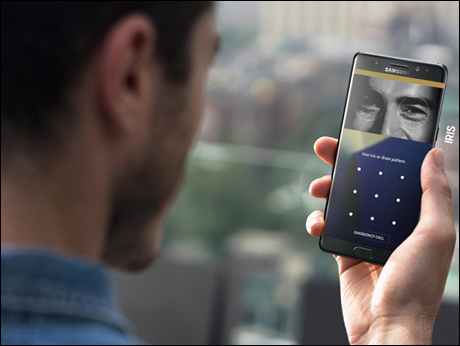
As more Indians use mobile phones as banks, security is a big worry
By Anand Parthasarathy
Bangalore, August 15 2016: In April this year, an announcement by the National Payments Corporation of India, went largely unnoticed by the aam janatha. It was called the Unified Payments Interface (UPI) and media hailed it as a technology that was going to revolutionize how we transferred money, making it as simple as sending a text message on a mobile phone. Four months on, the revolution is yet to happen -- largely because of the apathy of banking institutions; only a handful out of the 29 who agreed to provide UPI services have actually done so|
But thanks to more agile private players, push has come to shove, in the cashless consumer world: Mobile digital wallets like PayTM, Ezetap and MobiKwik now have over 150 million Indian users, who perform 75 million transactions a month from their phones. But this is not how most Indians send and receive money. Cash is still King for over 75 percent of all consumer transactions. Why? There are many reasons. You need a smart phone with an Internet data access: only a third of 1 billion handsets bought by us, are 'smart'. The hype about 3G and 4G notwithstanding, India has some of the lowest Internet speeds in the world. And most critical of all -- we are very distrustful of shifting our money electronically via a mobile phone.
Can anyone blame us? Hardly a day passes without news of a cyber scam, or money skimming operation. In Thiruvananthapuram baddies record your key strokes and clone your ATM card even as you enter your pin, under the full gaze of security cameras. Indians may book the odd movie ticket or order a biryani online -- but they are not going to rush into a new paperless payments era, till they are convinced their phones -- and the records and passwords stored on them -- are proof against pilfering.
Last week, that seemed a bit closer to realization . You might remember, only two weeks ago on this page, we had introduced a phone with a secure finger print scanner and another with an iris scanner -- each in its way a good way to prevent the wrong hands from opening it. I have just seen a phone which does both -- such are the shifting goalposts of innovation! The new avatar of the Samsung flagship phone -- Galaxy Note 7 -- has come to India only days after its global launch. It claims to be the most secure smartphone ever launched. You can chose to customise the phone with your finger print -- or by a scan of your iris, the colored, ring-shaped part of your eye that surrounds and controls the size of the pupil. Or you can use the finger for accessing less sensitive files and apps, while creating a Secure Folder that needs the extra authentication of an iris scan., which is impossible to duplicate.
The Note 7 has some other enhancements: you can use the S Pen or stylus, to do instant translation in 38 languages including 11 Indian tongues; the 5.7 inch screen is a quad HD display, the only phone today with the High Dynamic Range (HDR) feature found only on high-end TVs; You can store 64 GB on the phone, expandable by another 256 GB on a micro SD card. But none of these goodies may be quite as significant for Indian users, as its security features which will make it that much safer to store passwords, transaction keys and other nitty gritty of mobile money transfers|
With Aadhaar poised to be the de facto citizen ID for a host of payments -- cooking gas subsidies, pensions, MNREGA & JanDhan Yojana payments -- the ability to identify oneself from one's own phone will be the killer app of the near future. So what's stopping us all from buying an iris-thumb scanner phone and seeing the payments flow?
Two things:
First: While government is reaching out to all phone makers to make their phones UPI and Aadhaar compliant, few have as yet put their money where their mouth is.
Second, Iris and finger scanners on phones, cost money. the Samsung Galaxy Note 7 costs Rs 59,900... not quite the phone of the masses. But India is currently the world's biggest mobile phone bazaar --- and market forces will push down prices. And so will good old Indian innovation. ( see story alongside).
Meanwhile, we need to be safe rather than sorry, when shifting paisa on phone platforms. Jagte Raho!